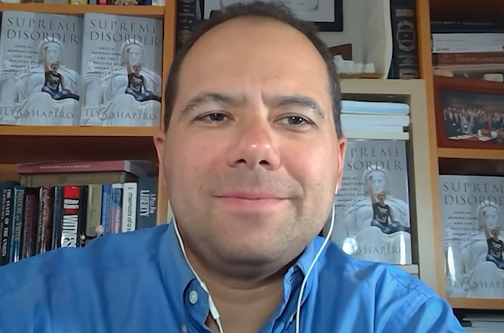Ilya Shapiro resigns from Georgetown University

After a 122-day investigation into his tweets, Ilya Shapiro resigned as senior lecturer and executive director of Georgetown University Law Center’s Center for the Constitution. Georgetown University, a private Catholic university run by Jesuits, had reinstated Shapiro after its investigation yet the investigation ultimately convinced Shapiro to resign.
Shapiro, who made his name in constitutional law circles due to his work at the libertarian Cato Institute, was reinstated on June 2. As the Foundation for Individual Rights and Expression (FIRE) outlined, the offensive tweet-in-question was when Shapiro said that Sri Srinivasan would have been a better U.S. Supreme Court nominee than President Joe Biden’s nominee Ketanji Brown Jackson. Srinivasan is currently the chief judge of the U.S. Court of Appeals for the District of Columbia Circuit, while Jackson was a fellow judge in the same court of appeals as Srinivasan. He wrote, “But alas [Srinivasan] doesn’t fit into latest intersectionality hierarchy so we’ll get lesser black woman.” The “lesser black woman” phrasing was in bad taste, as Shapiro acknowledged at the time, and Shapiro deleted it.
But the apology and deletion did not stop the cancel culture mob’s call for Shapiro’s firing online.
Law school dean William Treanor condemned Shapiro’s tweet as “appalling” and not representative of the law school’s values.
Georgetown University’s investigation concluded that university policies did not apply to Shapiro because the deleted tweet happened days before his official first day as a university employee and therefore, Shapiro did not face punishment.
Shapiro, in his resignation letter, simply put that the situation “apparently could’ve been resolved by looking at a calendar.”
The investigation also indicated that if Shapiro were to take a step out of line, so to speak, he could face another investigation and sanctions, such as being suspended or fired. To this, Shapiro said, “On this theory, all sorts of comments that someone – anyone – could find offensive would subject me to disciplinary action.” He poignantly wrote, “This would be a huge Sword of Damocles over my head as I try to engage in my educational mission.”
Shapiro also pointed out that other Georgetown University professors have made offensive or inflammatory remarks, but none were investigated as he was.
In short, Shapiro and FIRE made it clear that they believe that Georgetown University claims to follow its free speech policies, when its actions say otherwise.




